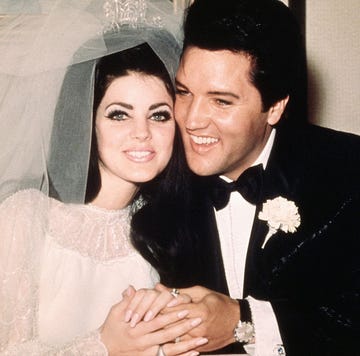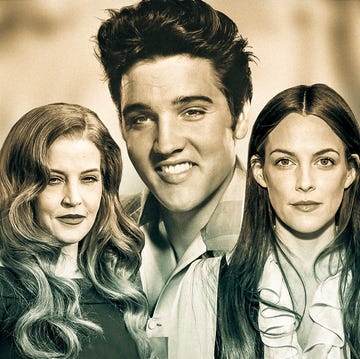Thanks in large part to guitarist Ace Frehley, KISS became one of the most electrifying rock bands of all time. One infamous performance became a literal embodiment of that distinction—and nearly cost Rock & Roll Hall of Fame inductee Frehley his life.
Frehley, known as stage persona “Spaceman” or “Space Ace” in the band, died Thursday, October 16, at age 74, his family confirmed in a social media statement. A cause of death wasn’t provided, but Frehley recently experienced a fall at his home.
“The magnitude of his passing is of epic proportions, and beyond comprehension. Reflecting on all of his incredible life achievements, Ace’s memory will continue to live on forever!” the statement read.
Born Paul Daniel Frehley in April 1951, Ace joined the band—along with Gene Simmons, Paul Stanley, and Peter Criss—in 1973, contributing to classic rock hits such as “Rock and Roll All Nite” and “Detroit Rock City.” However, no moment epitomized his onstage showmanship more than a memorable concert almost 50 years ago.
Frehley experienced an electric shock onstage during a 1976 concert
As Frehley and KISS readied to take the stage for a show in Lakeland, Florida, on December 12, 1976, the group began ascending and descending a set of staircases amid rows of amplifiers.
Frehley grabbed a railing to aid his balance, which completed an electrical circuit with his guitar, delivering him a massive shock that left him unconscious. “As I got to the top, I started descending on the railing and it wasn’t grounded properly. I got zapped with 220 volts,” Frehley recalled of the severe electrical shock in a video posted to Facebook. “Thank God I fell backwards instead of forwards, ’cause I could’ve plunged 20 feet down and probably broke my head open.”
For context, electrical sources as low as 42 volts can cause fatality, known as electrocution, according to the Cleveland Clinic. Shocks can cause complications such as infection, amnesia, and cardiac arrest.
“I guess my guardian angel was watching over me that night,” Frehley said.
Frehley was revived backstage and played the rest of the show on “adrenaline”
While Frehley survived, he suffered significant burns to his fingertips and had no feeling in his right hand—not ideal for a guitarist.
Once Frehley regained consciousness backstage, the band naturally prepared to cancel the rest of the concert. However, the energy from a raucous crowd convinced him to try playing.
“Kids started chanting my name, ‘Ace, Ace, Ace!’ you know, and all of a sudden you know everybody’s going, ‘Come on, Ace! You can do it, you can do it,’” he recalled.
“You know, the adrenaline took over at that point.”
Frehley finished the show and KISS took precautions to make sure the incident never happened again. Within days, the band flew to New York to purchase $25,000 in “radio microphones” that made their guitars shock-proof, according to an article published in Rolling Stone.
The incident inspired KISS song “Shock Me”
A sign of his artistry, Frehley found inspiration in his near-electrocution and used it to write the song “Shock Me,” featuring the guitarist on lead vocals. The track debuted on the group’s 1977 album Love Gun.
Frehley left KISS in 1982 to form his own band, Frehley’s Comet, but returned for multiple reunions. All four founding members were inducted to the Rock & Roll Hall of Fame in 2014.
While Frehley didn’t join KISS for the band’s December 2023 farewell concert at Madison Square Garden, he continued performing, playing his last show in Providence, Rhode Island, in September 2025.
Simmons and Stanley paid tribute to Frehley following the announcement of his death. “He was an essential and irreplaceable rock soldier during some of the most formative foundational chapters of the band and its history,” they wrote. “He is and will always be a part of KISS’s legacy.”
The infamous 1976 concert will make sure of that.
Tyler Piccotti joined the Biography.com staff as an Associate News Editor and is now the News and Culture Editor. He previously worked as a reporter and copy editor for a daily newspaper recognized by the Associated Press Sports Editors. In his current role, he shares the true stories behind your favorite movies and TV shows and profiles rising musicians, actors, and athletes. When he's not working, you can find him at the nearest amusement park or movie theater and cheering on his favorite teams.













